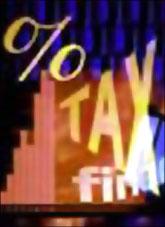 Fixed deposit schemes as a debt investment scheme has always enjoyed a certain degree of popularity. But not many have given a thought to the taxation aspect.
Fixed deposit schemes as a debt investment scheme has always enjoyed a certain degree of popularity. But not many have given a thought to the taxation aspect.
Remember it is very important for an investor to consider even the taxation aspect of their investment as taxes can significantly lower your returns generated by the investment. In case of fixed deposits, banks deduct TDS before letting you withdraw the final amount at maturity.
What is TDS?
TDS means tax deducted at Source. It is deducted by the banks if the interest earned on your fixed deposit exceeds Rs 10,000 in a financial year.
Why do banks do this?
Remember, interest earned on FD is your income. As any income earned attracts income tax, the income tax department has authorized banks and financial institutions to deduct tax before letting the depositors withdraw their money, inclusive of interest earned.
When do banks deduct TDS?
At the end of each financial year, the bank calculates the total interest earned by all your FDs. If the interest earned exceeds Rs 10,000, it will deduct TDS. This is done even if you have opened the FD in the name of the minor.
Any time, the bank pays interest on your FD, it checks for your TDS eligibility. This eligibility is decided by each branch of the bank.
How do changes in FD affect the changes in TDS?
Assume you have an FD of Rs 1 lakh (Rs 100,000) with your bank. The rate of interest offered by your bank on this FD is 10%. It means the interest you earn on this FD is Rs 10,000. Now suppose the bank hikes the interest rate to 11 per cent. This means the interest you earn now becomes Rs 11,000, which means you'll attract TDS.
Alternately, assume you have deposited Rs 50,000 in your FD at the rate of 12%. So you earn an interest of Rs 6000. Now if you make another deposit of Rs 50,000 at the same rate of interest, the total interest you earn will be Rs 12,000. This will make you eligible to pay TDS.
Always remember any increase in the rate of interest or deposit amount will make you liable to pay TDS.
How am I affected by TDS?
Are you an individual or a corporate? Remember the rate at which TDS is charged varies for both of them. In case of an individual or HUF (Hindu Undivided Family), the TDS is charged at the rate of 10.3% for amounts not exceeding 10 lakhs and 11.33% for amounts exceeding 10 lakh (Rs 1 million).
In case of corporates, the tax is charged at the rate of 20.6% for amounts below Rs 1 crore (Rs 10 million) and 22.6% if the amounts exceed Rs 1 crore. Banks will issue Form 16A for the tax deducted. You have to include this tax when computing tax liability for filing your tax returns.
What should I do if I don't want the bank to deduct TDS?
If you don't want banks to deduct TDS from your interest income, you have to submit Form 15H (for individuals) or Form 15AA (for trusts) to the bank. These forms are available with the branch where you have made the deposit.
Alternately, you can split up your deposit amount across multiple banks and branches in order to ensure your interest income doesn't exceed Rs. 10,000.








 © 2024 Rediff.com -
© 2024 Rediff.com -